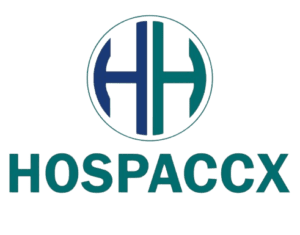SUPPLY CHAIN MANAGEMENT FOR HOSPITALS
INTRODUCTION
Healthcare supply chain management involves obtaining resources, managing supplies, and delivering goods and services to providers and patients. In healthcare, managing the supply chain is typically a very complex and fragmented process.
Considering the above facts, Hospaccx team work on supply chain management for hospitals. This is macroficial study on Supply Chain Management for Hospitals, if you want to get into more detail you can contact
SUPPLY CHAIN MANAGEMENT PROCESS
THE IMPORTANCE OF SUPPLY CHAIN MANAGEMENT
It is well known that supply chain management is an integral part of most businesses and is essential to company success and customer satisfaction.
- Boost Customer Service
- Customers expect the correct product assortment and quantity to be delivered on time.
- Reduce Operating Costs
- Decreases Purchasing Cost – Retailers depend on supply chains to quickly deliver expensive products to avoid holding costly inventories in stores any longer than necessary.
- Decreases Production Cost – Patient treatments depend on supply chains to reliably deliver medicine or surgical items to hospitals to avoid shortages that would shut down treatment or recovery.
- Decreases Total Supply Chain Cost – Retailers depend on supply chain managers to design networks that meet patient service goals at the least total cost. Efficient supply chains enable a firm to be more competitive in the market place.
- Improve Financial Position
- Increases Profit Leverage – Hospital value supply chain managers because they help control and reduce supply chain costs. This can result in dramatic increases in hospital profits.
- Decreases Fixed Assets – Hospital value supply chain managers because they decrease the use of large fixed assets.
- Increases Cash Flow – Hospital value supply chain managers because they speed up product flows to patients.
GLOBAL HEALTHCARE SUPPLY CHAIN MANAGEMENT MARKET
- Healthcare Supply Chain Management Market report is forecast to reach $2.31 billion by 2022 from $1.55 billion in 2017 at a CAGR of 8.4% during (2017-2022).
- The North American healthcare supply chain management market is expected to grow at the highest CAGR during the forecast period of 2017-2022.
FIVE HEALTH CARE SUPPLY CHAIN MANAGEMENT TRENDS
- Web-based tech will push health care supply chain management market past $2.2 billion by 2021
The value of the health care supply chain management market will reach $2.22 billion in four years. Driving market expansion are a number of factors, including compliance with the Food and Drug Administration’s Unique Identification Initiative, increasing pressure on hospitals and health systems to improve operational efficiency and profitability and rising adoption of cloud-based supply chain management solutions. Web-based models help to reduce operational and administrative expense, citing that technology as a particular area of growth for health care organizations.
- Use of data and analytics to drive supply chain management performance will increase
The need to reliably forecast supply chain outcomes will drive the increased use of advanced analytics to improve supply chain management performance.
- Push for population health management will reshape health care supply chain management
Population health management – the art and science of keeping healthy people healthy and people with chronic medical conditions as healthy as possible – will remake health care supply chain management.
- Risk-based contracting between providers and suppliers will redefine supply chain relationships
As health care providers assume more clinical and financial risk under value-based reimbursement contracts with payers, they want to share that risk with their suppliers.
- Health care supply chain leaders will need to upgrade and expand their skill set in the future
The “ideal” supply chain leader will excel in four competencies: communication, negotiation, analytics and presentation. They will have experience in health care, supply chain, managing people, project management and technology. They will have an advanced degree, be certified in Lean/Six Sigma and have leadership training. Their five desired personal traits are the ability to see the big picture, be an active listener, be personally effective, be flexible and be ethical.
MARKET DRIVERS FOR SUPPLY CHAIN MANAGEMENT FOR HOSPITAL
- There has been a seismic shift in the hospital environment such as increasing competition, high operational expenditure, growing fragmentation of the healthcare industry, shortening product lifecycles, crumbling of trade barriers, are the market drivers for healthcare supply chain management.
CHALLENGES FOR SUPPLY CHAIN MANAGEMENT FOR HOSPITAL
- 1. Hidden Costs
Challenge that healthcare providers face is the hidden costs of every product. Most providers have historically just looked at the product cost and the shipping cost. But there are additional expenses, such as inventory holding. Providers need to plan their budget around total landed supply costs. They need to be aware of the losses they will incur from the unavoidable aspect of expired products and excess supplies.
- 2. Drug Shortages
This can create a mess in the healthcare supply chain. It forces providers to either purchase alternatives that are much more expensive or maintain a comprehensive backup inventory of products that are at risk of being in short supply, which then leads to the added cost of inventory management and product expiration.
- 3. Data Shortage
A lack of actionable data is something that is endemic among providers. Executives in hospitals recognize that their decisions are not sufficiently informed because they do not have access to advanced modelling systems and real-time reports.
- 4. Lack of Integration
These supply chains need to be integrated. Purchasing channels need to be centralized. Facilities need to share contracts so that they can gain access to higher tier pricing. Without these adjustments, the supply chain will not be cost-effective and the processes that it contains will remain inefficient.
- Poor Workflow Design
Throughout the healthcare supply chain, many processes are unnecessarily duplicated. The reason for this is that the systems and entities that make up the supply chain are disconnected. Many of the tasks could be automated and integrated in a way that would allow all participants to share information more freely.
CONCLUSION
Healthcare supply chain management is the regulation of the flow of medical goods and services from manufacturer to patient. SCM encompasses the planning and management of all activities involved in sourcing and procurement, conversion and all logistics management activities. Hence, it greatly help material managers to manage with continuous improvement efforts, while maintaining quality of care.
Are you looking for supply chain management for your hospital?
We can help you in managing your hospital inventory, by closely working with your Hospital staff and understand all the back-end and front-end activities going on in the hospital. We will develop improvements that can:
- Reduce costs
- Increase inventory turns and inventory improvement
- Improve customer service and maintaining the right balance between high quality at low cost
- Performance improvement
It is the superficial and macro level study for more details kindly contact Hospaccx Healthcare business consulting Pvt. ltd on hospaccx.india@gmail.com Or you can visit our website on hospaccxconsulting.com
Related Team Members

















